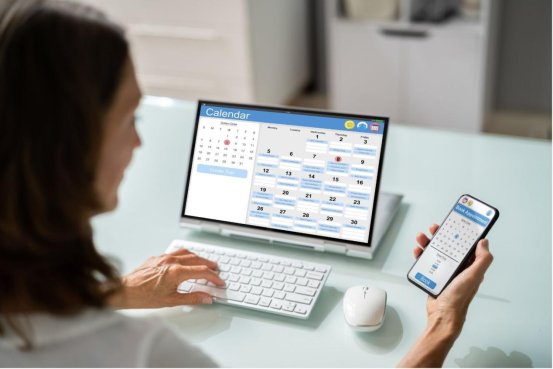In an era where time is a precious commodity, businesses are constantly striving to keep up with the ever-accelerating pace of the corporate landscape. The intricacies associated with appointment scheduling are becoming increasingly evident, posing challenges that can impact operational efficiency and customer satisfaction alike.

As companies aim to enhance productivity and streamline their processes, the shortcomings of traditional scheduling methods—marked by inefficiency and time loss—can prove detrimental to their success. Efficient scheduling, therefore, emerges as a cornerstone of effective operations, vital not only for productivity but also for creating rewarding customer experiences. This article explores the current state of appointment scheduling practices and the transformative power of modern scheduling software.
The Challenges of Traditional Scheduling
Manual appointment scheduling is fraught with difficulties that can impede an organization’s efficiency. One major drawback is the significant amount of time consumed by staff in coordinating meetings and managing appointments. The repetitive nature of these tasks leads to wasted resources, reducing overall productivity. Moreover, the increased potential for scheduling conflicts and double bookings exacerbates these inefficiencies. Sectors such as healthcare, salons, and legal services frequently grapple with these challenges; a missed appointment within such industries can yield financial loss and dissatisfied clients. The fallout of poor scheduling extends beyond immediate business ramifications, as it can tarnish an organization's reputation and negatively impact operational efficiency. This highlights the pressing need for businesses to transition to modern scheduling solutions that alleviate these challenges while significantly enhancing customer experience.
The Rise of Appointment Scheduling Software
The advent of appointment scheduling software has provided an essential answer to the complexities that modern businesses face. Historically, the process of scheduling evolved from cumbersome manual methods—most notably pen-and-paper scheduling—to more agile digital tools designed to enhance efficiency. The emergence of online calendars in the early 2000s marked a pivotal shift in this evolution, leading to powerful platforms that extend far beyond mere appointment setting. Key features such as automated booking processes eliminate the need for back-and-forth communication, while seamless integration with calendar systems and modern communication tools significantly enhances operational efficiency. These capabilities not only simplify the management of appointments but also foster optimal productivity, establishing scheduling software as an indispensable asset for businesses in the current landscape.
Benefits of Streamlining Appointment Scheduling
Streamlining appointment scheduling yields substantial benefits that enhance both organizational productivity and customer satisfaction. Implementing automation empowers staff to reclaim invaluable time, allowing them to concentrate on core business initiatives rather than mundane scheduling tasks. For example, a dental practice that integrated scheduling software reported a staggering 30% increase in productivity; staff members could dedicate more time to patient care rather than appointment management. Concurrently, customer satisfaction sees notable improvement from reduced wait times and enhanced interactions. A local spa that transitioned to an online booking system noted a 25% decline in no-shows, coupled with positive client feedback regarding the ease of making appointments. These compelling real-world examples illustrate the profound transformations made possible by modern scheduling solutions.
Essential Features to Look for in Scheduling Software
When selecting scheduling software, there are key features that can significantly enhance its effectiveness. A user-friendly interface is crucial, ensuring that both staff and clients can navigate the system seamlessly, fostering an improved user experience. Mobile accessibility is also critical, as it enables users to schedule appointments conveniently on-the-go. Customization options allow for tailoring the software to specific business requirements, enhancing flexibility. Additionally, robust reporting and analytics capabilities offer valuable insights into scheduling performance, thereby empowering businesses to optimize their processes and augment customer satisfaction.
Embracing New Scheduling Solutions for Greater Success
The importance of effective appointment scheduling software cannot be overstated when it comes to enhancing productivity and customer satisfaction. As businesses maneuver through an increasingly competitive landscape, it becomes crucial to reevaluate and modernize existing scheduling practices. By embracing advanced solutions, companies can not only drive efficiency but also pave the way for sustained success in today’s fast-paced market.





